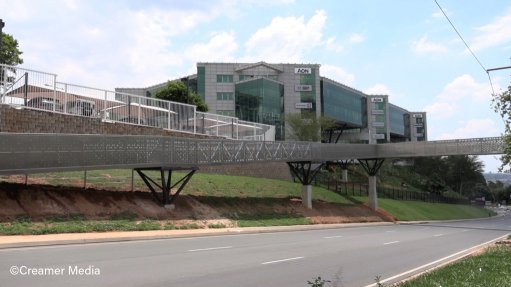Water, water everywhere . . .
A year ago, we had electricity load-shedding and now, in the Western Cape, we may have water-shedding.
There is a very very serious water shortage in the Western Cape. There is a website that gives updates on the steady decline of the dam levels. At the time of writing, the dams were 19.7 % full, compared with 72.9 % full in 2014.
The current water consumption is about 660-million litres a day. So, since 10% of the dam water cannot be used, there is about 100 days of water left. Residents are exhorted on a daily basis to use less water; people phone radio stations and give advice on the best ways to reduce water use.
The current drought is the worst since 1904. This fact is unfortunate because it brings to light that the water shortage is not a result of climate change. The people who believe in climate change have been very quick to point out that the shortage in the Western Cape is a natural consequence of climate change, whereby energy-guzzling motor vehicles and carbon emissions lead to natural disasters.
Unfortunately, in 1904, there were no energy-guzzling motor vehicles or carbon emissions, but there was a drought that was even worse than the current one. Thus, we have to find something else to blame. I wrote in an earlier column that I thought the wind turbines in the Western Cape and the Eastern Cape had something to do with it. I sent my thoughts to John Maytham, of Cape Talk Radio, and he sent my query to a meteorologist, who wrote: “The wind farms are to the east (and north-east) of Cape Town, so they would not retroactively affect the rain here, and, other than slowing the wind near the ground, would not have any discernible effect on the amount of rain.”
The Western Cape government is doing very little that is positive to save the situation; it issues edicts about water restrictions that are almost impossible to enforce – at just about any local taxi rank, the taxis are washed using high-pressure hoses and the water goes down the drain.
There is talk of drilling boreholes and building desalination plants, but little seems to be happening. And, like a tolling bell before an execution, the provincial government constantly reminds us of what will happen when water runs out. This generates what my mother would refer to as “essence of aunt frightener” and the result, unfortunately, is not that Capetonians resort to extreme water-saving measures (like having their Scotch neat or not washing the dog); they are scrambling to store water for themselves for the day when the municipalities cut the supply. Consequently, the sale of rainwater tanks is at an all-time high. Which is a good thing.
However, once the tanks have been bought, many householders use municipal water to fill them up, which hardly reduces consumption. What’s more, many apartment blocks now have water tanks on the roof, which are also being filled up with municipal water.
The local freshwater springs have many people queuing up to fill 20 ℓ containers. This would be fine if there was one container for each person. But no – people arrive with bakkies loaded with containers which they take two hours to fill up and then drive off, only to return.
This applies across the board. At the local spring, a fruity individual from Constantia said he had a constitutional right to fill up as many containers as he wanted. Sorry, old boy, that is how it is.
However, the Western Cape government masterplan is cunning in the extreme; the provincial government is going to wait until it rains. Sink some boreholes. Smart, né? A desalination plant could be put together in about 60 days – using drydock pumps at Sturrock, Robinson and the South African Navy docks. These can be turned to supply desalination plants, which are a dime a dozen in the Middle East. This is a real defence against a possibly imaginary threat. But they Have To Do It Now. But They Are Not. What they are doing now is the reverse: an imaginary defence against a real threat.
Article Enquiry
Email Article
Save Article
Feedback
To advertise email advertising@creamermedia.co.za or click here
Comments
Press Office
Announcements
What's On
Subscribe to improve your user experience...
Option 1 (equivalent of R125 a month):
Receive a weekly copy of Creamer Media's Engineering News & Mining Weekly magazine
(print copy for those in South Africa and e-magazine for those outside of South Africa)
Receive daily email newsletters
Access to full search results
Access archive of magazine back copies
Access to Projects in Progress
Access to ONE Research Report of your choice in PDF format
Option 2 (equivalent of R375 a month):
All benefits from Option 1
PLUS
Access to Creamer Media's Research Channel Africa for ALL Research Reports, in PDF format, on various industrial and mining sectors
including Electricity; Water; Energy Transition; Hydrogen; Roads, Rail and Ports; Coal; Gold; Platinum; Battery Metals; etc.
Already a subscriber?
Forgotten your password?
Receive weekly copy of Creamer Media's Engineering News & Mining Weekly magazine (print copy for those in South Africa and e-magazine for those outside of South Africa)
➕
Recieve daily email newsletters
➕
Access to full search results
➕
Access archive of magazine back copies
➕
Access to Projects in Progress
➕
Access to ONE Research Report of your choice in PDF format
RESEARCH CHANNEL AFRICA
R4500 (equivalent of R375 a month)
SUBSCRIBEAll benefits from Option 1
➕
Access to Creamer Media's Research Channel Africa for ALL Research Reports on various industrial and mining sectors, in PDF format, including on:
Electricity
➕
Water
➕
Energy Transition
➕
Hydrogen
➕
Roads, Rail and Ports
➕
Coal
➕
Gold
➕
Platinum
➕
Battery Metals
➕
etc.
Receive all benefits from Option 1 or Option 2 delivered to numerous people at your company
➕
Multiple User names and Passwords for simultaneous log-ins
➕
Intranet integration access to all in your organisation














